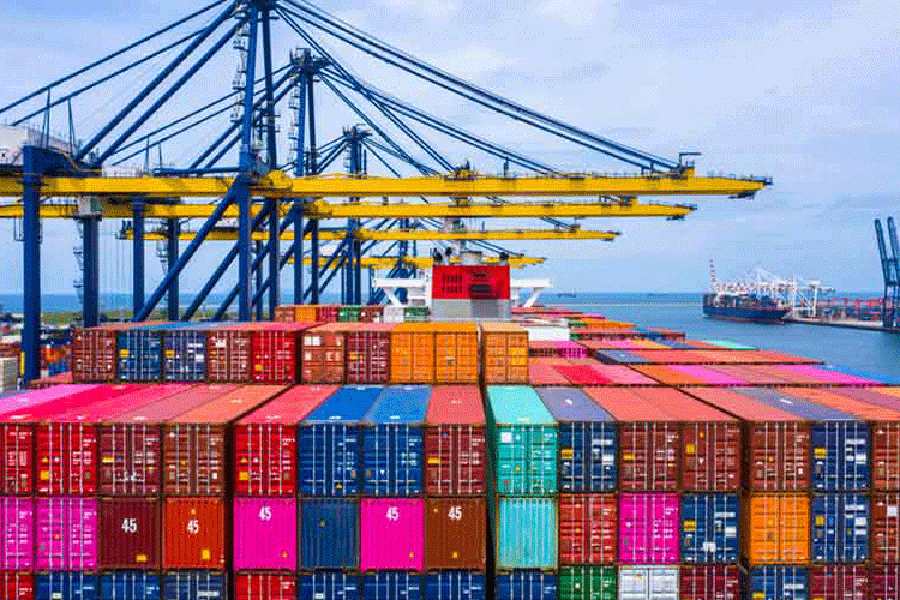The slump in global demand pushed India’s export down by 6.86 per cent to $34.48 billion in August, the seventh month in a row, as the shipments of petroleum, gems and jewellery slowed.
Imports also declined, the ninth month in a row, 5.23 per cent to $58.64 billion against $61.88 billion recorded in August 2022.
The trade deficit (difference between imports and exports) during the month remained almost flat at $24.16 billion. However, it widened on a sequential basis, as it was $20.67 billion in July.
Cumulatively, exports during April-August this fiscal contracted 11.9 per cent to $172.95 billion. Imports during the five-month period fell 12 per cent to $271.83 billion. Trade deficit narrowed to $98.88 billion against $112.85 billion a year ago.
Commerce secretary Sunil Barthawal told reporters that there is some improvement and it is a “good sign for us”.
India’s exports contracted 15.88 per cent in July. He added that till July, there was pessimism, but now green shoots are visible.
He, however, expressed concerns over rising interest rates in Europe, which may impact their manufacturing and Indian shipments.
Arun Kumar Garodia, chairman, EEPC India, said: “The August trade data has brought welcome relief for the engineering exports sector. After eight consecutive months of year-on-year decline, engineering goods exports have turned positive with total shipments value registering 7.73 per cent growth last month.”
Aditi Nayar, chief economist, Icra, said: “Owing to the sharp sequential uptick in merchandise imports in August 2023, the merchandise trade deficit widened to a 10-month high of $24.2 billion in the month, while printing marginally lower than that seen in the year ago levels. With the monthly merchandise trade deficit prints averaging much higher during July-August vis-à-vis April-June 2023, India’s current account deficit is likely to widen in Q2 FY2024 from the $10-12 billion expected in Q1 FY2024.”
“Sluggish global economic contraction and demand coupled with the subdued growth in economies such as the US and Australia has led to such a modest performance,” A Sakthivel, president, FIEO, said.










